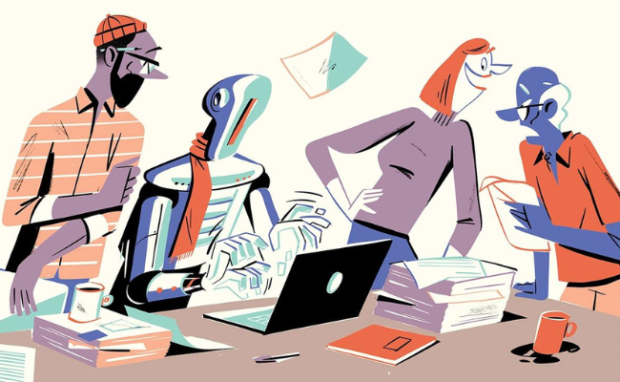AI Papers Made With ChatGPT Fool Scientists
You may have heard the news of ChatGPT fooling professors. Recently, it bamboozled scientists with convincing AI papers.
The reports came from a preprint from the scientific bioRxiv server in December 2022. Researchers asked ChatGPT to create 50 abstracts based on several scientific sources.
They found that medical researchers struggled to distinguish the fakes from the originals. Moreover, the AI content easily passed plagiarism checkers.
How did researchers test AI papers on scientists?

Photo Credit: blog.frontiersin.org
Dr. Catherine Gao, a physician-scientist from Northwestern University, thought of the AI abstract experiment during dinner with her husband.
He was discussing with Dr. Frederick Howard, an instructor in hematology at the University of Chicago, about ChatGPT.
“I wondered if it could write scientific abstracts,” Gao said. “I asked it to write an abstract about a hypothetical machine-learning study focusing on pneumonia in the intensive care unit.”
Consequently, ChatGPT surprised her with a “scarily good abstract.” Then, Gao showed it to her husband, who immediately felt intrigued.
In response, Gao and her colleagues wanted to know if scientists could differentiate between real scientific abstracts from AI papers.
Thus, they provided ChatGPT with 50 medical-research abstracts from five sources. These were JAMA, The BMJ, The Lancet, The New England Journal of Medicine, and Nature Medicine.
Then, the researchers ran them through plagiarism detection software. The AI abstracts passed with flying colors with a 100% originality score.
In other words, the AI papers showed no signs of plagiarism. Next, they used an AI-output detector and spotted 66% of the artificial abstracts.
Finally, they asked scientists to identify the AI-generated content. Only 68% correctly spotted the AI papers, and 86% detected genuine abstracts properly.
Note that the researchers published their work as a preprint on bioRxiv. You should consider them as preliminary findings because they have not been peer-reviewed.
What do researchers say about AI papers?

Photo Credit: www.hollywoodreporter.com
Many scientists shared their opinions on Gao’s findings. Sandra Wachter from the University of Oxford said she felt “very worried.”
“… we’re now in a situation where the experts are not able to determine what’s true or not,” Wachter said.
She fears we might “lose the middleman that we desperately need to guide us through complicated topics.”
Irene Solaiman, Hugging Face researcher for AI’s social impact, worries that people may depend on large language models for scientific thinking.
AI uses past information to create content. As a result, it might limit scientific findings that challenge old methods or propose new ones.
Also, Arvind Narayanan, a computer scientist at Princeton University, says that serious scientists would not publish AI papers.
He acknowledges the issues but claims the focus should be on something other than on researchers using ChatGPT. Instead, we must resolve the “perverse incentives that lead to this behavior.”
Conclusion
Northwestern University physician-scientist Dr. Catherine Gao found that scientists struggle to distinguish between real abstracts and AI papers.
The academic and scientific community must find a way to adapt to artificial intelligence. Otherwise, we may find more troubling news, such as the students cheating with ChatGPT.
More importantly, you must find a way to thrive in our tech-dominated world. Fortunately, Inquirer Tech can help by providing you with the latest digital updates.